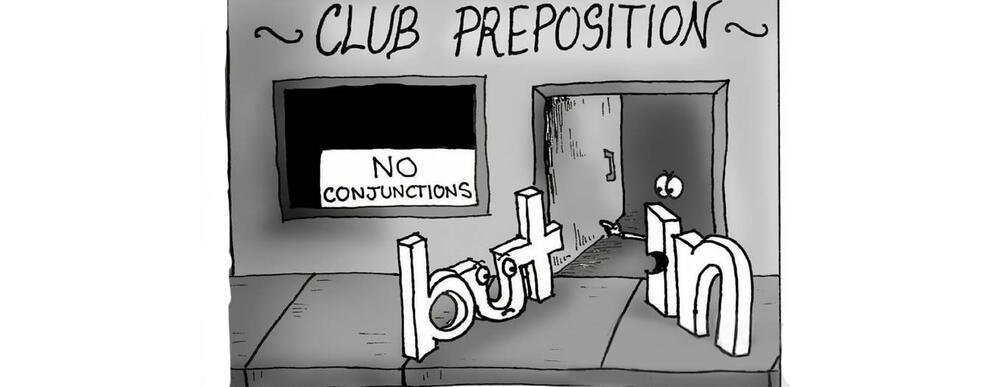Posted on Jan 24, 2021 |
The preposition is a kind of word that is used to precede its complement. Prepositions generally have the function of introducing non-argumentative complement. Basically it is an invariable word whose function is to introduce a noun.
In some other languages, prepositions may not head a prepositional phrase, in English for example prepositions may even appear at the end of the sentence. The word Preposition comes from the Latin “prae” (which means before) for PRE, and “ponere” (which means put) for POSITION, referring that such words are placed before their complement.
In the Spanish language, prepositions have changed over time, influenced by the globalization of some terms by other languages. Currently 22 are recognized in total, and we will share them here with an example to illustrate each one.
There are three basic rules for propositions that you have to know:
Rule 1 : Prepositions in the Spanish language are "invariable" words, this means that they do not have masculine or feminine gender; prepositions also have no numerical value, which means they never change.
Rule 2 : Almost all the prepositions are atonic words since they do not have an accent; the only exceptions are "según (by)" and "vía (via)".
Rule 3 : Prepositions are basically words that serve to join or connect other words together and help us understand the relationship between the two. A simple example is the preposition "de": " La casa de Lisa (Lisa's house)". We have related the words “casa” and “Lisa” together.
Spanish Prepositions List
1- a
Example : “John visitó a su familia para las fiestas” (John visited his family for the holidays)
2 - ante
Example : “Yo presenté el proyecto ante la junta directiva.” (I presented the project to the board of directors.)
3 - bajo
Example : “Dejaré la nota bajo el mantel” (I'll put the note under the tablecloth)
4 - con
Example : “Me gusta el pastel de chocolate con una bola de helado encima” (I like chocolate cake with a scoop of ice cream on top)
5- contra
Example : “El viento soplaba fuerte contra los árboles” (The wind was blowing hard against the trees)
6- de
Example : “Me gustan las galletas de jengibre” (I like gingerbread cookies)
7- desde
Example : “No he usado esa camisa desde Enero” (I haven't worn that shirt since January)
8- durante
Example : “Me he ejercitado durante 2 horas hoy.” (I have exercised for 2 hours today.)
9- en
Example : “Mi hermana entró en escena justo a tiempo.” (My sister came on the scene just in time.)
10- entre
Example : “Esto se queda entre nosotros” (This stays between us)
11- hacia
Example : “Veo que las aves vuelan hacia el sur” (I see the birds fly south)
12- hasta
Example : “Todos juntos caminaremos hasta la meta” (Together we will walk to the goal)
13- mediante
Example : “Nos fortaleceremos mediante ejercicios bien estudiados” (We will strengthen ourselves through well-studied exercises)
14- para
Example : “Tengo un hermoso regalo de cumpleaños para mi mamá” (I have a beautiful birthday present for my mom)
15- por
Example : “Lo hemos comprado por razones obvias” (We have bought it for obvious reasons)
16- pro
Example : “Hemos formado una asociación pro protección medio ambiente.” (We have formed an association for the protection of the environment.)
17- según
Example : “Le entrego el mensaje según me han indicado.” (I deliver the message as I have been instructed.)
18- sin
Example : “Trabajaremos hasta tarde sin preocuparnos de la hora” (We will work late without worrying about the time)
19- sobre
Example : “Dejó los documentos sobre el escritorio” (He left the documents on the desk)
20- tras
Example : “El equipo ha trabajado más duro tras la salida de su mejor jugador.” (The team has worked harder after the departure of its best player.)
21- versus
Example : “Los mejores juegos de la consola PlayStation versus XBox” (The best games on the PlayStation versus XBox console)
22- vía
Example : “Vuelo de Guatemala a Dakota del sur vía Houston” (Flight from Guatemala to South Dakota via Houston)
Preposition Classifications
All of these prepositions are classified in different ways based on their use or purpose. Although this classification is not so relevant, it can help you understand the meaning of some sentences in Spanish.
- Prepositions of place or space. These refer to a place.
- Prepositions of time. Refer to a certain time or amount of time.
- Preposition of possession (belong to...) or “made of”. These refer to those that indicate that they belong to something or someone
- Agent preposition. These refer to those that relate to a subject.
- Prepositions of Cause or Purpose. These refer to propositions that relate to an action or purpose of something.
Prepositional phrases
Of course, you should also keep in mind that prepositional phrases are prepositions made up of two or more words. We share a couple of examples below.
- “He llegado tarde por culpa del tráfico.” (I've been late because of the traffic.)
- “Para hacer la receta más rápido, colocá los ingredientes uno junto a el resto en fila.” (To make the recipe faster, place the ingredients next to each other in a row. )
- “Yo estoy a favor de seguir el mapa para llegar más rápido.” (I am in favor of following the map to get there faster).
Now you have a better idea what prepositions are, tt is something simple and yet important when learning Spanish language.
Latest Posts
-
Ten Beautiful Words in the Spanish Language
- Jul 13, 2024 -
Easter Week 2024 in Antigua Guatemala
- Feb 04, 2024 -
Demystifying the Use of CION, SION, and XION Suffixes in Spanish
- Oct 22, 2023

